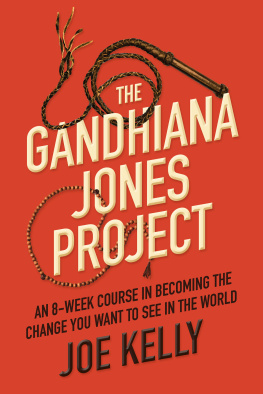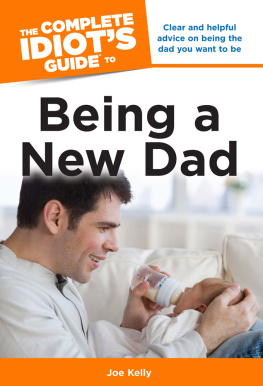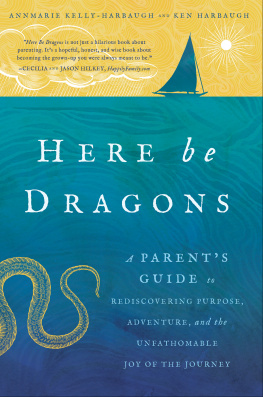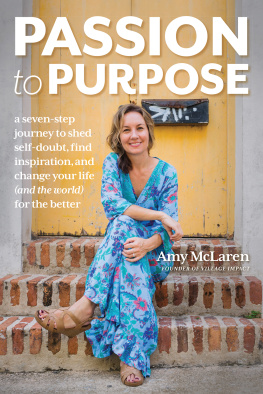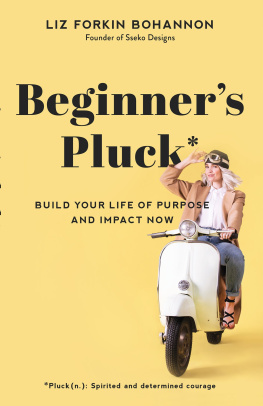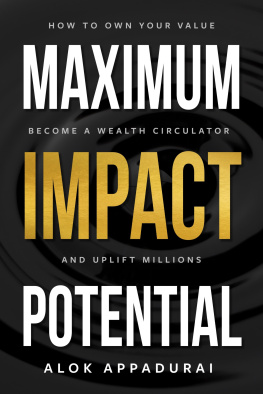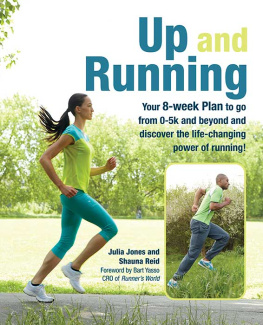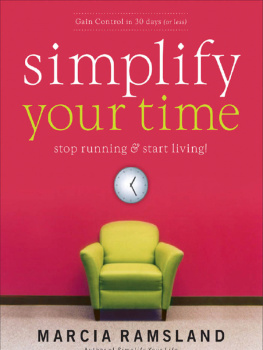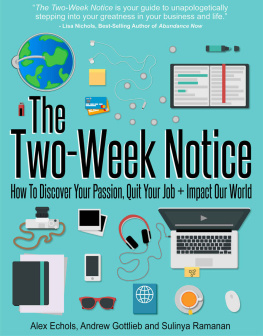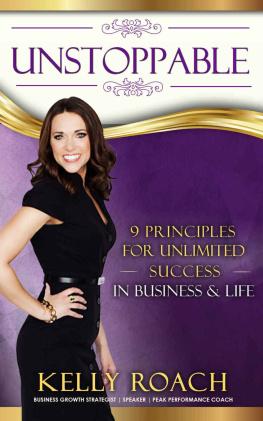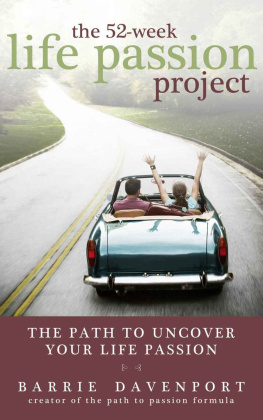Copyright 2022 by Joe Kelly
All rights reserved. No part of this book may be reproduced, stored in a retrieval system or transmitted, in any form or by any means, without the prior written consent of the publisher.
Library of Congress Control Number: 2021914252
ISBN 978-1-63756-010-5 (hardcover)
ISBN 978-1-63756-011-2 (EPUB)
Editor: Joanna Henry
Cover design and interior design: Morgan Krehbiel
Typesetting: Paul Dotey
Cover images: bullwhip by iStock/stevecoleimages; beads by iStock/jackof Author photo: Neil Goodes
Published by Wonderwell in Los Angeles, CA
www.wonderwell.press

Distributed in the US by Publishers Group West and in Canada by Publishers Group Canada
To Dad, who nudged me toward a higher path. Your memory whispers: stay the course.
CONTENTS
INTRODUCTION

Our greatest ability as humans is not to change the world; but to change ourselves.
MAHATMA GANDHI
CAN YOU NAME SOME GREAT CHANGE-MAKERS IN THE WORLD? I ask my class. Im standing in front of thirty fresh-faced university students on their first day of the academic year, a whiteboard behind me. Hands begin to raise. I start writing.
Mother Teresa.
Nelson Mandela.
Martin Luther King Jr.
Rosa Parks.
Mahatma Gandhi.
Its a lineup of iconic historical figures that make the list every year when I give the students this exercise.
These are all people who are remembered because theyve had a huge impact on the world, I say. And Im sure you could name many more. But now, I want to hear about people youve actually met. They dont have to be well known, but theyve made a real difference in their own communities. Regular people. The list that follows is quite different.
My aunt Phyllis started a community garden.
A guy in my neighborhood puts on a block party every year that raises money for homeless people.
My fifth-grade teacher got our whole class connected to a group of kids in Uganda.
These examples, I say, are all ordinary people whove done extraordinary things. On the surface, they may not seem as great as Gandhi, but everyone on both of these lists has done something to better the world, whether theyre famous or not. So, what qualities do you think they possess that you dont? I look out at a sea of furrowed eyebrows. How did they get to be change-makers?
Its a rhetorical question. I know theyre here to find out how. Ive been teaching the course, called Project Change, for several years nowand it all began in an elevator.
It was 2013, and I had been working as a college professor for some time. My watershed moment came while waiting for the elevator up to my third-floor office. In the past, Id always grumbled about people who use the elevator to go up just a few floors. Didnt they see a golden opportunity to get some exercise? But now, I was one of them. I had always thought of myself as an active person and someone who used every moment of my day wisely. When did I stop taking the stairs? I wondered. I couldnt remember. How did you let this happen? I glanced down at the doughnut in my hand.
From the outside, taking an elevator may seem inconsequential. But from the inside, it felt much bigger. What I saw in that moment of stark clarity was that I was not living in alignment with my values. One small change in my behavior had impacted my life negatively, in perhaps more than one way. I was slightly overweight and grumpy about it, at the very least. In my head, I heard another question: What if you made just one positive change in your life, right now? I didnt think twiceI took the stairs.
This incident triggered a thought process that lasted throughout the week. I began to see the larger picture of my life, and I didnt like what I was seeing. In debt, single, and feeling disconnected from the people around me, I was on autopilot. Something had gone off the rails in my life, and it would take a conscious effort to put it right.
I continued to take the stairs daily until I was sprinting up them. One morning, as I burst through the door of my office, a saying Id seen on a bumper sticker popped into my head: Be the change you want to see in the world. It was from Mahatma Gandhi.
This gentle man had lived very simply and owned very little, working tirelessly for economic, religious, and gender equality in India and eventually becoming the leader of a political movement that overthrew British rule. His efforts catalyzed the civil rights movements in North America and across the globe that began midway through the twentieth century. This was a change-maker the likes of which the world had rarely seen. I thought about how he had conducted his life and wondered what lessons I might draw for my own.
Im not going to lie; having Gandhi as a role model seemed a tall order. He was so selfless and accomplished so much, butand I dont mean to sound flippantdid he enjoy himself? I still liked my cappuccinos, steaks, movies, vacationsI found myself wondering if sacrificial duty was a prerequisite to living as a change-maker.
I began to think about other people Id admired over the course of my life and remembered my very first larger-than-life role model: Indiana Jones. I was nine in 1981 when the film Raiders of the Lost Ark was released, and I can remember breathlessly watching Indiana, the daring archaeologist, as he braved unknown worlds, cracked his whip, and saved the world from evil. I idolized him. His combination of smarts, raw courage, passion, humor, and style was incredibly appealing to me. And it still is. If you can do good things and live an adventurous life, then count me in!
At first glance, my two role models couldnt have had less in commonuntil I reconsidered the quote, Be the change you want to see in the world.
Gandhi didnt set out trying to be an influential leader or attempting to get others to change. He started with himself. He lived in perfect alignment with his values. So did Indy, for that matter. This common ground seemed like a good starting place for me as well.
With Gandhi and Indy as my role models, I decided to embark on a yearlong experiment, determined to make positive and meaningful changes in my life. I would make change, do it authentically, and have fun along the way. Every month, I selected a new challenge for a different area of my life: leadership, service, health, the environment, technology, spirituality, and so on. Being an educator and researcher, I also developed a systematic method by which to measure the results. I couldnt wait to get started.
One month, I spent an hour in nature every day. Another month, I unplugged from technology. Yet another month, I walked everywhere I needed to go. Before long, I was shedding pounds, paying off my debt, and learning new skills. I felt great. That was to be expected, I suppose, but I hadnt anticipated that improving my life would lead to others feeling great, too. It was like a positive feedback loop. My positive effects on others enhanced my own happiness and sense of meaning. The behavior changes I was making rippled out into my community and then back to me. And once I began directing my challenges outward, like performing deliberate acts of kindness every day for a month, I found these things had a longer-lasting impact on my own sense of well-being than hitting my target weight or paying off my last outstanding bill. By the end of the year, my experiment with change had revealed a lot.

